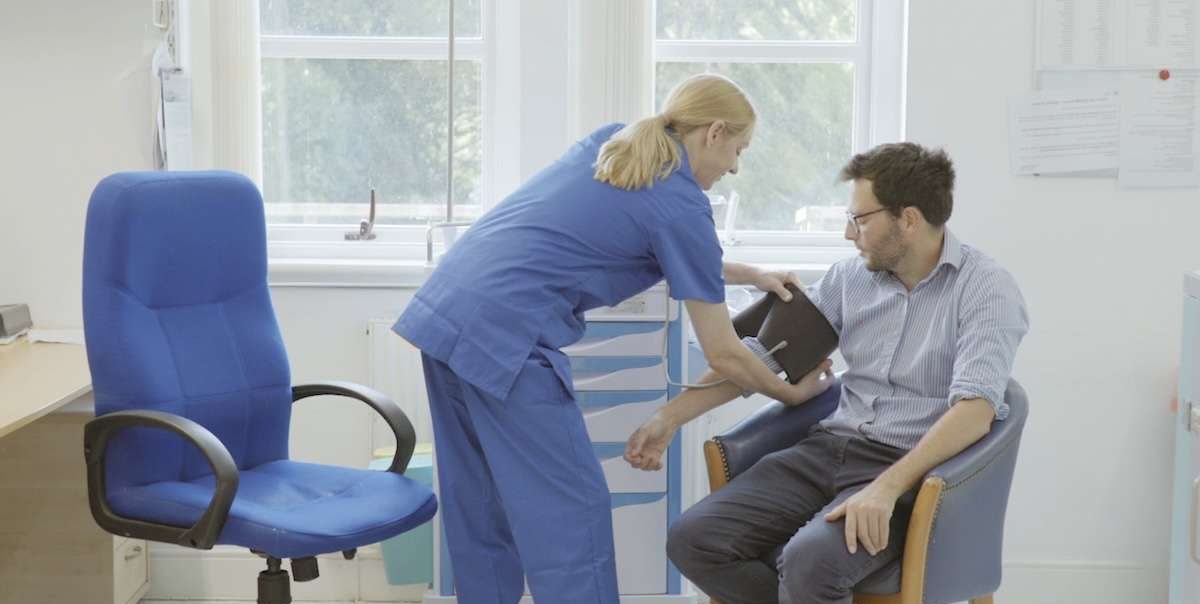
Residential Gabapentin Detox Treatment
At Castle Craig, we expertly provide residential, medically managed detox for individuals struggling with gabapentin dependency. Our care extends beyond prescription drug withdrawal, offering inpatient rehab treatment for co-occurring conditions such as stimulant misuse alongside trauma, anxiety or other mental health disorders. With options for 28-day and longer-term gabapentin rehab treatment, patients benefit from a private and therapeutic environment, a whole-person approach to recovery and the support of an experienced clinical team in the peaceful Scottish countryside.
This article will explain key aspects of gabapentin detoxification, including how long it takes to withdraw from the nerve pain drug, how long gabapentin withdrawals last and what to expect when medically detoxing from anti-convulsant medication. We will also outline the medical detox timeline, common withdrawal symptoms, possible medications for prescription drug reduction and the stages of recovery. To find out more about our medically managed withdrawal treatment, call us on 01721 546 263.
Can You Get Addicted to Gabapentin?
Yes, it is possible to get addicted to gabapentin, particularly when the medication is taken in higher doses or without medical guidance. Dependence may develop gradually, leading to withdrawal symptoms if the prescription drug is suddenly stopped. Because of this, medically detoxing from anti-seizure medication should be carefully managed with professional support.
In the UK, gabapentin is prescribed under brand names such as Neurontin for conditions like epilepsy and nerve pain. Although it has legitimate medical uses, some individuals misuse it for its sedative or calming effects, sometimes alongside alcohol or other drugs. This can increase the risk of prescription drug addiction and highlight the need for medically managed anti-seizure drug detox.
What is Gabapentin (Neurontin) Detoxification?
Gabapentin detoxification is the process of safely removing the medication from the body while managing any withdrawal effects. This process is particularly important for patients who have developed dependence and are detoxing from the nerve pain medication after prolonged use.
During a medical Neurontin reduction, patients are supported through a structured tapering plan to reduce symptoms and avoid health risks. Gabapentin withdrawal can be both physical and psychological, so a medical substance detox centre may also provide therapies and wellbeing support to improve comfort and long-term recovery outcomes.
What is a Medically Managed Gabapentin Detox?
A medically managed detox for gabapentin is a structured process where patients withdraw from the anti-seizure drug under continuous clinical oversight. Medical professionals monitor health, manage withdrawal symptoms and provide a safe Neurontin detoxification plan tailored to the patient’s needs.
This type of medical gabapentin detox can reduce risks such as seizures, severe anxiety or rebound pain. In a residential rehab setting, doctors may prescribe medications for nerve pain medication withdrawal and provide therapeutic support, helping people to stabilise before continuing with long-term prescription drug rehabilitation.

Start Your Recovery at a Residential Rehab Today
Difference Between Medically Managed Gabapentin Detox and Medically Supervised Gabapentin Detox
A medically managed gabapentin detox provides round-the-clock clinical oversight with doctors able to intervene immediately if anti-convulsant withdrawal complications occur. In contrast, a medically supervised detox usually involves periodic check-ins with healthcare professionals, but without constant monitoring.
The key difference lies in the level of medical involvement and safety provided. For patients at higher risk of severe gabapentin withdrawal symptoms, a medically managed stabilisation is often the safer option. It allows for adjustments in Neurontin addiction treatment, use of supportive medications and rapid response to any emergencies.
Free Stimulant Drug Addiction Assessment
At Castle Craig, we offer free gabapentin addiction assessments at the start of prescription drug treatment so we can fully understand your needs. This initial consultation allows our staff to recommend the most appropriate level of care for you.
Following the assessment, we can design a gabapentin detox and rehab treatment plan tailored to your situation. Our pricing is inclusive, meaning that medical Neurontin withdrawal is built into the overall cost of substance addiction treatment, and there are no hidden fees. Contact us today for more information.
Free Neurontin Addiction Assessment
Taking the first step and asking for help can feel daunting, but our team is here to assist you.
Benefits of Inpatient Gabapentin Detox and Withdrawal Treatment
There are many different benefits to choosing an inpatient gabapentin detox. Medical stabilisation in a safe environment provides immediate protection against the risks of unmanaged anti-convulsant drug withdrawal, while professional care allows for adjustments to prescription medication addiction treatment in real time. This setting reduces the likelihood of Neurontin relapse during the early stages of stopping use.
In the following sections, we’ll highlight the specific benefits of residential detox treatment. From continuous medical management to personalised tapering strategies, inpatient prescription drug rehab offers structured support that addresses both physical and psychological needs. This creates the foundation for long-term recovery, gabapentin relapse prevention and a smoother transition into ongoing substance misuse rehabilitation services.
-
Continuous Medical Supervision During Gabapentin Withdrawal
One of the main advantages of inpatient gabapentin detoxification is round-the-clock medical care. Symptoms such as seizures, mood instability or physical discomfort can appear suddenly, and trained staff are always available to intervene safely.
Continuous medical management also reduces anxiety, as patients know they are not going through gabapentin withdrawal alone. With a team monitoring physical health and emotional well-being, the process of stopping Neurontin becomes safer and more manageable than attempting it at home.
-
Supportive Residential Environment for Detoxing from Gabapentin
An inpatient medical withdrawal centre provides a calm and supportive setting for detoxing from gabapentin. Being away from external stressors and triggers gives patients the space they need to focus on recovery.
At Castle Craig, our therapeutic, nature-based environment combines privacy, comfort and access to professional staff. This support network not only assists with medical stabilisation but also offers emotional encouragement during the most difficult stages of gabapentin withdrawal.
-
Structured Detox Routine for Nerve Medication Dependence
Residential medical detox treatment provides a structured daily routine, which is important when coming off prescription gabapentin. Regular sleep patterns, meals and therapeutic activities help restore balance to the body and mind.
This structure also reduces the chaotic thinking that often accompanies nerve medication withdrawal. By following a predictable schedule, patients can focus their energy on gradual recovery and avoid being overwhelmed by Neurontin cravings or discomfort.
-
Tailored Tapering Plans Through Gabapentinoid Detox Stages
Every patient responds differently to detoxing from gabapentinoids, so personalised tapering schedules are recommended. Medical teams gradually reduce the Neurontin dosage in safe, manageable steps to prevent dangerous withdrawal effects.
This controlled approach helps to minimise symptoms while protecting the nervous system. Professional guidance allows gabapentin dosage reductions to be adjusted based on each person’s response, reducing risks and making the withdrawal timeline more tolerable.
-
Emotional Support During Anti-Seizure Drug Withdrawal
Inpatient gabapentin detox treatment doesn’t just address physical symptoms of prescription drug withdrawal – it also provides emotional support. Patients often experience anxiety, mood swings or depression during early stages of stopping anti-seizure medication.
At Castle Craig, we offer holistic therapeutic care alongside medical detox treatment. Counselling, group support and other therapies help patients process emotions, rebuild resilience and develop coping strategies that support long-term recovery.
-
Professionally Guided Gabapentin Reduction in a Structured Setting
Attempting to stop gabapentin abruptly at home can be risky. In a structured clinical environment, tapering is guided by experienced doctors and nurses who can adjust Neurontin detox plans based on safety and progress.
This professional guidance helps manage both physical withdrawal and psychological effects. With ongoing support, patients can medically detox in a way that reduces risk, builds confidence and lays a solid foundation for prescription drug rehabilitation.
-
Aftercare and Relapse Prevention Strategies for Lasting Recovery
Gabapentin detox alone is rarely enough for lasting recovery. Inpatient prescription drug rehab offers aftercare planning and relapse prevention strategies to support patients once Neurontin withdrawal is complete.
Aftercare strategies may include drug addiction therapy, support groups, lifestyle adjustments and ongoing medical input. A strong relapse prevention plan helps patients maintain progress, address cravings and reduce the likelihood of returning to gabapentin misuse.
-
Smooth Transition from Detox to Long-Term Epilepsy Drug Recovery
Inpatient drug dependency care makes the transition from detox to longer-term rehabilitation much smoother. Patients can move directly into addiction therapy, relapse prevention and continuing care without interruption.
At Castle Craig, our integrated treatment approach ensures that gabapentin detox is only the beginning of recovery. From Neurontin stabilisation to rehabilitation, we guide patients through each stage, giving them the opportunity for long-term health.
Private Anti-Convulsant Drug Detox Centre Near Me
For individuals searching for a private anti-convulsant drug detox centre near me, it can feel overwhelming to know where to begin. Below, we explain how to contact Castle Craig directly and also provide useful steps on finding reputable gabapentin withdrawal centres across the UK.

Contact Castle Craig Gabapentin Detox Centre
Castle Craig is located at Blyth Bridge, West Linton, United Kingdom, EH46 7DH, where we provide expert inpatient care for individuals detoxing from gabapentin. With over 30 years of substance addiction experience, our clinical team specialises in medically managed detox for prescription drug dependence, supported by therapies that address both physical and psychological health.
Find Us
01721 546 263
info@castlecraig.co.uk
Castle Craig,
West Linton, Edinburgh, United Kingdom, EH46 7DH
If you or a loved one is struggling with gabapentin misuse or dependence, call 01721 546 263 today. Our admissions staff can guide you through your options for residential prescription drug treatment regarding epilepsy medication, nerve-related pain medicine or co-occurring conditions.
-
How to Find a Prescription Medication Detox Centre Near You
When searching for a safe and reputable place to begin detoxing from gabapentin, there are several steps that can help you get started:
- Search for “Private Gabapentin Detox Near Me” or Include Your Location: Try specific terms like ‘private inpatient gabapentin detox centre near me’, ‘Neurontin detox clinic in the UK’ or ‘medically managed neurostimulant medication withdrawal UK’ to narrow your options.
- Seek Clinics Providing 24/7 Medical Supervision for Safe Detox: Gabapentin withdrawal can carry risks, so continuous care helps manage symptoms and supports safe stabilisation.
- Review Patient Feedback and Success Stories Related to Prescription Drug Recovery: Patient testimonials can provide insights into the inpatient detox clinic’s approach and the effectiveness of prescription drug withdrawal treatment.
- Ask About the Structure and Approach of the Gabapentin Withdrawal Programme: Find out if the anti-convulsant stabilisation centre provides tapering schedules, psychological therapies and support for co-occurring conditions.
- Request Clear Information on Medical Withdrawal Costs and Flexible Payment Arrangements: Transparency around Neurontin detox pricing avoids hidden costs and some drug withdrawal clinics may offer payment plans.
- Confirm if Health Insurance Includes Coverage for This Type of Treatment: Some private health providers cover medical gabapentin detox if treatment is pre-approved.
Find Out About Anti-Seizure Medication Detox Treatment
At Castle Craig, we provide free prescription medication and gabapentin addiction assessments during the intake process. This allows our experienced team to understand the history and circumstances that led to epilepsy drug dependence, so we can recommend the most appropriate substance misuse care plan for safe withdrawal and long-term recovery.
We offer a minimum 4-week programme that can include gabapentin detox alongside tailored prescription drug rehabilitation treatment. Our residential service combines medical management of Neurontin withdrawal with psychological support, helping patients stabilise physically and emotionally while beginning their recovery journey in a safe and therapeutic environment. Call us on 01721 546 263 for more information.
Signs, Symptoms and Effects of Gabapentin Withdrawal & Detoxification
When patients begin discontinuation treatment for gabapentin, they may experience a range of withdrawal signs and symptoms. The following sections highlight common effects during different stages of nerve pain medication reduction, though this is not a complete list. Every patient may experience the Neuronton withdrawal timeline differently, depending on dosage, length of use and health history.
-
Early Signs of Nerve Pain Medication Withdrawal
In the first 12-24 hours after stopping Neurontin, some early symptoms may appear. These are usually milder but can be distressing without medical support.
- Restlessness or agitation: Patients may feel unsettled and unable to relax, often pacing or struggling with heightened tension.
- Mild insomnia or disrupted sleep: Difficulty falling asleep or waking frequently through the night is common in early stages.
- Increased nerve pain or tingling: Previous symptoms the epilepsy drug was treating may temporarily worsen after detox.
- Irritability or mood changes: Quick shifts in mood and frustration can surface as the body adjusts to the absence of the anti-convulsant drug.
- Mild headaches or dizziness: Some individuals experience light-headedness, making daily tasks more difficult during gabapentin withdrawal.
-
Moderate to Severe Symptoms of Gabapentin Withdrawal Syndrome
Between days 2-5, symptoms often intensify. Medical detoxification at a specialist gabapentin withdrawal centre is important to safely manage these effects.
- Severe anxiety or panic attacks: Emotional distress can increase, sometimes presenting as acute panic requiring professional reassurance.
- Intense cravings for gabapentin: Patients may strongly desire to restart the prescription anti-seizure drug, which can heighten relapse risks.
- Tremors or muscle spasms: Uncontrolled shaking or spasms may interfere with mobility and comfort during this stage.
- Nausea, vomiting or gastro issues: Digestive upset such as stomach cramps and diarrhoea can add to physical discomfort.
- Sleep disturbances and nightmares: Vivid or disturbing dreams often disrupt sleep cycles and prolong fatigue.
-
Psychological Effects of Anti-Convulsant Medication Withdrawal
Psychological symptoms can appear within the first few days and, in some cases, linger for weeks without controlled substance withdrawal support.
- Heightened irritability or agitation: Patients may snap easily or feel constantly on edge.
- Depressed mood or low motivation: Feelings of sadness, hopelessness and difficulty engaging in activities can occur.
- Anxiety or panic episodes: Heightened fear or nervousness may strike suddenly and repeatedly during gabapentin withdrawal.
- Cognitive difficulties or brain fog: Trouble focusing, remembering details or processing information can impair daily function.
- Mood swings or emotional instability: Sudden shifts from sadness to anger or tearfulness may be experienced.
-
Physical Signs and Symptoms During Prescription Drug Detox
Physical withdrawal effects from prescription drug discontinuation can begin within the first day and last a week or longer.
- Tremors or shaking: Shaky hands or jitteriness can interfere with basic tasks.
- Sweating or clammy skin: Excessive perspiration may occur, even without physical exertion.
- Nausea or vomiting: Gastrointestinal distress can sap strength and appetite.
- Muscle pain or stiffness: Aches and rigidity may affect movement and increase discomfort.
- Fatigue or low energy: Persistent tiredness often prevents normal routines and reduces motivation.
-
Long-Term Effects Without Proper Gabapentin Detox Support
If individuals stop prescription gabapentin without medical stabilisation, long-term health issues may follow. These complications highlight the importance of structured residential detox and rehabilitation.
- Persistent anxiety or depression: Ongoing emotional instability can affect daily well-being.
- Ongoing sleep disturbances: Difficulty sleeping may continue long after initial anti-convulsant withdrawal.
- Cognitive difficulties or brain fog: Lingering problems with focus and memory may affect work or study.
- Chronic pain or heightened sensitivity: Underlying nerve pain may worsen without proper management.
- Risk of relapse or dependency cycle: Attempting to self-medicate symptoms can restart harmful patterns of Neurontin use.

Medications Used for Gabapentin Detoxification
Medication may or may not be used during gabapentin detox. The decision is made case by case, depending on the severity of anti-convulsant drug dependence, withdrawal symptoms and a patient’s overall health.
Below are some commonly used medications, all of which should be prescribed only under medical guidance to promote safe Neurontin withdrawal and avoid further risks.
- Clonazepam (reduces anxiety and seizures during gabapentin withdrawal): Clonazepam may be prescribed to control seizure risk and ease anxiety. It should only be used under strict medical guidance due to its potential for dependency.
- Diazepam (helps manage agitation and insomnia): Diazepam is sometimes given to calm agitation and improve sleep during nerve pain medication withdrawal. Medical oversight is recommended, as benzodiazepines can themselves lead to dependence if not carefully managed.
- Propranolol (controls elevated heart rate and tremors): Propranolol is often used to stabilise cardiovascular responses, reducing rapid heartbeat, tremors and physical tension that may arise during gabapentin withdrawal.
- Loperamide (relieves gastrointestinal upset and diarrhoea): Loperamide may be used to reduce stomach cramps and diarrhoea during Neurontin detoxification. It can help patients remain more comfortable and focused on the recovery process.
- Acetaminophen / Paracetamol (manages headache and general pain): Paracetamol can help ease general gabapentin withdrawal discomfort such as headaches or body pain, improving tolerability of the prescription drug detox process without posing significant risks.
- Ibuprofen (reduces inflammation and muscle aches): Ibuprofen is another common non-prescription option, targeting muscle aches, joint discomfort and inflammation that may occur during the early anti-convulsant medication withdrawal stages.
- Ondansetron (helps with nausea and vomiting): Ondansetron may be used to ease nausea and vomiting, helping patients maintain hydration and avoid further complications during gabapentin detox.
- Hydroxyzine (reduces anxiety and promotes sleep): Hydroxyzine is sometimes prescribed to reduce anxiety levels and promote better sleep patterns without the risks associated with stronger sedatives.
At Castle Craig, our approach to using withdrawal medications for gabapentin addiction is guided by medical responsibility and patient safety. We recognise that some people may worry about forming new dependencies, which is why these medicines are prescribed only when clinically necessary. All prescriptions are carefully managed by our Consultant Psychiatrist and a dedicated medical team throughout the inpatient clinical detox process.
Our goal is to alleviate gabapentin withdrawal symptoms safely while focusing on your overall recovery and the goal of abstinence. By using evidence-based protocols and regularly assessing your progress, we only use prescription drug detox medications as a short-term tool to support your transition into sobriety, always prioritising your long-term health, well-being and abstinence.

Contact Castle Craig Today
If you would like to learn more about the intake process for our residential gabapentin detox treatment in the Scottish Borders, we are here to help. Our admissions staff can answer your questions and guide you through the first steps of beginning recovery.
Does Health and Medical Insurance Cover Anti-Seizure Drug Detox Treatment?
In many cases, private health and medical insurance will cover anti-seizure drug detox treatment such as gabapentin withdrawal care. However, the level of coverage depends on the insurer, the specific policy and the type of treatment required. It is always recommended to check your policy details or contact your provider directly.
If your policy covers addiction rehab treatment and your insurer authorises care at Castle Craig, we do accept private medical insurance. Our admissions staff can help guide you through the process and support you in arranging treatment.
How Much Does Residential Gabapentin Detox Cost in the UK?
The typical cost of residential gabapentin detox in the UK ranges from £1,000–£6,000 for a short 7-10 day stay. However, this reflects Neurontin detoxification cost alone and does not include longer treatment for lasting recovery. Within residential rehabilitation, medical stabilisation may cost between £650–£1,500 per day or £4,500–£10,000 per week, depending on the drug withdrawal clinic and level of care.
Costs will vary depending on a patient’s medical needs, treatment duration and whether dual diagnosis care is required. At Castle Craig, we can discuss all prescription drug addiction treatment lengths and associated costs so you know exactly what to expect. To learn more about our inpatient rehabilitation plans, including gabapentin detox, call us on 01721 546 263.
Nerve-Pain Medication Detox Timeline and How Long It Takes
While timelines vary, most patients experience a structured Neurontin withdrawal process over several days. Gabapentin detox is usually the first stage of a full prescription drug rehabilitation process designed to address both physical and psychological aspects of anti-seizure medication dependence.
Below, we outline common stages of nerve pain medication withdrawal, but completing a full substance misuse rehab programme is strongly recommended if advised by a healthcare expert.
-
Stage 1: Early Withdrawal Symptoms (6–12 Hours After Last Dose)
In the first 6-12 hours after the last dose of gabapentin, patients may begin to feel mild withdrawal effects. Early symptoms often include irritability, mild headaches, dizziness or disrupted sleep. Early Neurontin withdrawal effects can be uncomfortable but are generally manageable with proper medical support.
During this stage, cravings for your anti-convulsant medication may also begin, alongside increased nerve pain or agitation. At Castle Craig, our staff closely monitor these early reactions and can provide comfort measures and clinical reassurance to ease the initial transition.
-
Stage 2: Peak Gabapentin Withdrawal Symptoms (24–72 Hours)
The most intense gabapentin withdrawal effects usually appear between 24 and 72 hours after stopping the prescription medication. Patients may experience severe anxiety, tremors, restlessness, nausea or gastrointestinal upset. Emotional distress such as mood swings or panic episodes is also common during this peak stage.
Medical management during this time is particularly important, as Neurontin withdrawal symptoms can feel overwhelming. Our inpatient drug rehabilitation setting allows for continuous monitoring, targeted medication where clinically necessary and supportive care to help patients remain safe and stable.
-
Stage 3: Subsiding Symptoms and Stabilisation (3–7 Days)
After three to seven days, gabapentin withdrawal symptoms often begin to settle, and the body adjusts to functioning without the anti-seizure drug. Sleep patterns may slowly improve, cravings reduce and physical discomfort becomes more manageable. Patients may still experience emotional fluctuations or fatigue, but these usually lessen in intensity.
This stabilisation stage is a key turning point in medical Neurontin detox. With ongoing clinical and therapeutic support, patients can begin to focus on long-term recovery strategies. At Castle Craig, we help patients prepare for the next stage of prescription drug rehabilitation, addressing the psychological effects of gabapentin dependence alongside physical healing.

Related Guides on Medically Managed Residential Detox
Detox Centre | Inpatient Detox | Alcohol | Drugs | Cocaine | Heroin | Crystal Meth | Valium | Tramadol | Benzodiazepines | Xanax | Codeine | Opioid | Ecstasy | Morphine | Amphetamine | Cannabis
Gabapentin Detox Admissions and Treatment Process
When you begin nerve therapy drug detox treatment at Castle Craig, our admissions process carefully assesses your level of gabapentin dependency while also considering the personal reasons behind your epilepsy medication misuse. This allows us to create a prescription drug addiction treatment pathway that meets your unique medical and psychological needs.
- Confidential First Consultation and Review of Nerve Pain Medication Use: Patients start with a private consultation where we explore their history of gabapentin use, health concerns and recovery goals.
- Evaluation Questions to Determine Suitability for Medical Detox Admission: As part of this pre-admission consultation, a thorough medical evaluation is carried out to confirm the safest detoxification route.
- Exploring Payment Plans or Confirming Insurance Coverage: Our admissions case managers will also guide you through available payment options for medical Neurontin detox treatment.
- Welcome and Orientation to Inpatient Detox Programmes: Once approved, patients are welcomed into our residential prescription drug rehabilitation centre, introduced to medical staff and guided through what to expect during gabapentin detox.
- Ongoing Medical Oversight During Neurontin Detox and Preparation for Discharge: Continuous monitoring is provided throughout anti-convulsant medication withdrawal, with preparation for discharge and follow-up care to support long-term recovery.
Questions About Gabapentin Detox Treatment?
Contact us to discuss your treatment needs with a licensed clinician.
Find Out About Our Drug Detox Treatment
We provide a private 11-bed medical substance detox centre onsite, designed to offer medical safety and comfort during the initial stages of recovery. Our inpatient setting allows patients withdrawing from gabapentin and other prescription drugs to receive around-the-clock care in a supportive and therapeutic environment.
We also create highly personalised treatment plans that go beyond medical detoxification. For patients who have co-occurring conditions such as anxiety alongside prescription drug addiction, our dual diagnosis approach provides integrated care. This means we can address both anti-seizure medication dependence and underlying mental health needs to promote long-term recovery. Call us on 01721 546 263 to begin your journey with Castle Craig by your side.
Free Gabapentin Addiction Assessment
Compassionate, expertly delivered evidence-based practices and a patient-centred approach are at the heart of our treatment model. Request a call-back from one of our professionals on any day of the week.
-
Statistics on Gabapentin Misuse in the UK
- A UK study noted that 1.1% of the general population had misused gabapentin at some point in their lives.
- Between 2004 and 2020, gabapentin was detected in 913 drug-related deaths in England, indicating its prevalence in cases of accidental or intentional misuse.
- Prescriptions for gabapentin in England soared to 6.7 million in 2017-18, making it the most prescribed among gabapentin, pregabalin and oxycodone during that period.
- In England, new prescriptions for nerve‑pain medication gabapentinoids, including gabapentin, tripled between 2007 and 2017. More than half of these gabapentin prescriptions were for unlicensed uses, such as osteoarthritis or back pain.
- The National Treatment Outcome Research Study (NTORS) in the UK found that 47 percent of patients treated in residential rehabilitation achieved abstinence after five years, compared with just 35 percent of those in community-based services.